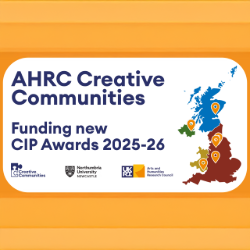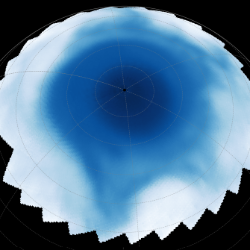-
Study
-
Undergraduate
- UCAS Clearing & Confirmation 2025
- Application Guides
- UCAS Exhibitions
- Extended Degrees
- School & College Outreach
- Information for Parents
-
Postgraduate
- Application Guide
- Postgraduate Research Degrees
- Flexible Learning
- Change Direction
- Register your Interest
-
Student Life
- Students' Union
- The Hub - Student Blog
- Accommodation
- Northumbria Sport
- Support for Students
-
Learning Experience
- Real-World Learning
- Research-enriched learning
- Graduate Futures
- The Business Clinic
- Study Abroad
-
-
International
International
Northumbria’s global footprint touches every continent across the world, through our global partnerships across 17 institutions in 10 countries, to our 277,000 strong alumni community and 150 recruitment partners – we prepare our students for the challenges of tomorrow. Discover more about how to join Northumbria’s global family or our partnerships.
View our Global Footprint-
Quick Links
- Course Search
- Undergraduate Study
- Postgraduate Study
- Information for Parents
- London Campus
- Northumbria Pathway
- Cost of Living
- Sign up for Information
-
International Students
- Information for International Students
- International Events
- Application Guide
- Entry Requirements and Education Country Agents
- Global Offices
- English Requirements
- English Language Centre
- International student support
- Cost of Living
-
International Fees and Funding
- International Undergraduate Fees
- International Undergraduate Funding
- International Masters Fees
- International Masters Funding
- International Postgraduate Research Fees
- International Postgraduate Research Funding
-
International Partners
- Agent and Representatives Network
- Global Partnerships
- Global Community
-
International Mobility
- Study Abroad
- Information for Incoming Exchange Students
-
-
Business
Business
The world is changing faster than ever before. The future is there to be won by organisations who find ways to turn today's possibilities into tomorrows competitive edge. In a connected world, collaboration can be the key to success.
More on our Business Services -
Research
Research
Northumbria is a research-rich, business-focused, professional university with a global reputation for academic quality. We conduct ground-breaking research that is responsive to the science & technology, health & well being, economic and social and arts & cultural needs for the communities
Discover more about our Research-
Quick Links
- Research Peaks of Excellence
- Academic Departments
- Research Staff
- Postgraduate Research Studentships
- Research Events
-
Research at Northumbria
- Interdisciplinary Research Themes
- Research Impact
- REF
- Partners and Collaborators
-
Support for Researchers
- Research and Innovation Services Staff
- Researcher Development and Training
- Ethics, Integrity, and Trusted Research
- University Library
- Vice Chancellors Fellows
-
Research Degrees
- Postgraduate Research Overview
- Doctoral Training Partnerships and Centres
- Academic Departments
-
Research Culture
- Research Culture
- Research Culture Action Plan
- Concordats and Commitments
-
-
About Us
-
About Northumbria
- Our Strategy
- Our Staff
- Our Schools
- Place and Partnerships
- Leadership & Governance
- University Services
- History of Northumbria
- Contact us
- Online Shop
-
-
Alumni
Alumni
Northumbria University is renowned for the calibre of its business-ready graduates. Our alumni network has over 250,000 graduates based in 178 countries worldwide in a range of sectors, our alumni are making a real impact on the world.
Our Alumni - Work For Us
What will I learn on this module?
This second theory module will introduce you to a range of life sciences underpinning health care provision. You will explore anatomy and physiology and how understanding of key body systems enhances your ability to observe and assess individuals in terms of signs and symptoms of disease and illness, including physical and mental health conditions. In addition, you will learn about social and behavioural sciences and how these impact on wellbeing and influence life choices throughout the life span. This module will also help you develop your understanding of the role pharmacological and non-pharmacological interventions play on health and illness and how individuals of all ages engage with personalised medication and treatments. You will also consider and explore the role of research and evidence in the provision of nursing associate care and how by adopting evidence-based practice adverse events can be minimised resulting in up-to-date management of treatments for patients and families. The content of this module will help you appreciate the complex and multi-factorial interactions that underpins disease and illness and how individuals respond to physical and psychological challenges during their lifespan. This information will help you to deliver safe, effective, compassionate and holistic care which is embedded within the Standards of proficiency for nursing associates (Nursing and Midwifery Council [NMC], 2024). You will learn about concepts such as anatomy and physiology, genomics and diversity, pharmacology and biological principles associated with health and disease.
How will I learn on this module?
You will engage with different teaching and learning strategies such as group seminars and problem-based learning approaches along with online supported learning packages (OSL) and virtual reality-based anatomy and physiology packages via Blackboard Ultra. This will help you gain confidence in sharing ideas and discussing complex issues relating to the module content and promote your understanding of anatomy and pathophysiology and how to meet the ongoing needs of patients and families across a range of complex conditions. You will develop independent learning skills, become an active learner for developing your nursing associate knowledge and skills.
How will I be supported academically on this module?
You will be supported by a team of academics in Nursing, Midwifery and Health. You will receive ongoing guidance and feedback to ensure you are able to engage with concepts of safe nursing associate practice. You will be expected to engage with the online supported learning (OSL) packages in preparation for face-to-face teaching, group work activities and discussion. You will be able to contact the module team in person, by email, by telephone and through Blackboard Ultra. Skills Plus, the university library's collection of online learning materials can be used to support the development of your academic skills. Further support for your learning is provided with a 24-hour IT Helpline, a comprehensive range of services through the Student Support and Wellbeing Team and the university's student portal, which gives help and advice on student enquiries such as disability, faith, counselling, mental health support, finance, assessments, and welfare issues. You can access these services via email on your student portal, by telephone or through the help desk staff based within university libraries.
You will also support each other via peer support, through engaging in discussion and debate to enhance your learning. Additional relevant materials, including the electronic reading list and other teaching and learning methods will be available via eLP and library services. The university libraries at both Coach Lane Campus and City Campus offer an extensive collection of material, both hard copy and electronic, access to international databases and training in information retrieval. All support will be in line with any Student Accessibility Plan (SAP).
What will I be expected to read on this module?
All modules at Northumbria include a range of reading materials that students are expected to engage with. The reading list for this module can be found at: http://readinglists.northumbria.ac.uk
(Reading List service online guide for academic staff this containing contact details for the Reading List team – http://library.northumbria.ac.uk/readinglists)
What will I be expected to achieve?
Knowledge & Understanding:
1. Apply knowledge of anatomy, physiology, psychosocial principles, and pharmacology to deliver person-centred, evidence-based care while effectively communicating with individuals, families, and carers.
2. Understand and implement safe, compassionate, and well-led nursing associate care across the lifespan, demonstrating collaboration, professional behaviour, and self-reflection.
Intellectual / Professional skills & abilities:
3. Develop the skills to support individuals and families with diverse care needs, promoting person-centred care, independence, and inclusion while reflecting on learning to enhance lifelong professional development.
Personal Values Attributes (Global / Cultural awareness, Ethics, Curiosity) (PVA):
4. Demonstrate professionalism, integrity, and adherence to ethical, legal, and professional standards to ensure safe, compassionate, and inclusive nursing associate practice that upholds dignity, independence, rights, and choice.
How will I be assessed?
Formative Assessment: MLO 1-4
You will have the opportunity to undertake a formative practice exam in the classroom setting. Feedback will be provided through group activity.
Peer and tutor feedback will inform your development in this module, including peer assisted study sessions.
Summative Assessment: MLO 1-4
The summative assessment will be a 2-hour unseen short answer written examination with the option of three questions, answering only two. The exam will be taken and invigilated on campus. Exam results will be available electronically via turnitin and the exam paper will be returned to you for your ongoing learning and development.
Pre-requisite(s)
N/A
Co-requisite(s)
N/A
Module abstract
This module covers key life sciences related to healthcare, focusing on anatomy, physiology, and the understanding of body systems. You will learn to assess individuals based on signs and symptoms of physical and mental health conditions. The module also introduces social and behavioural sciences, exploring how they impact well-being and life choices. It emphasises pharmacological and non-pharmacological interventions, including personalised medication, while considering the role of research and evidence-based practice. The module also highlights the importance of minimising adverse events and up-to-date patient care. You will gain insight into the complex factors behind disease and illness, and how individuals respond to physical and psychological challenges. The goal is to equip you with the skills to provide safe, effective, compassionate, and holistic care. Topics include body systems, pathology, disease, health assessments, and the fundamentals of quality care provision.
Course info
UCAS Code B780
Credits 20
Level of Study Undergraduate
Mode of Study 2 years Full Time
Department Nursing, Midwifery & Health
Location Coach Lane Campus, Northumbria University
City Newcastle
Start September 2026
All information is accurate at the time of sharing.
Full time Courses are primarily delivered via on-campus face to face learning but could include elements of online learning. Most courses run as planned and as promoted on our website and via our marketing materials, but if there are any substantial changes (as determined by the Competition and Markets Authority) to a course or there is the potential that course may be withdrawn, we will notify all affected applicants as soon as possible with advice and guidance regarding their options. It is also important to be aware that optional modules listed on course pages may be subject to change depending on uptake numbers each year.
Contact time is subject to increase or decrease in line with possible restrictions imposed by the government or the University in the interest of maintaining the health and safety and wellbeing of students, staff, and visitors if this is deemed necessary in future.
Useful Links
Find out about our distinctive approach at
www.northumbria.ac.uk/exp
Admissions Terms and Conditions
northumbria.ac.uk/terms
Fees and Funding
northumbria.ac.uk/fees
Admissions Policy
northumbria.ac.uk/adpolicy
Admissions Complaints Policy
northumbria.ac.uk/complaints








